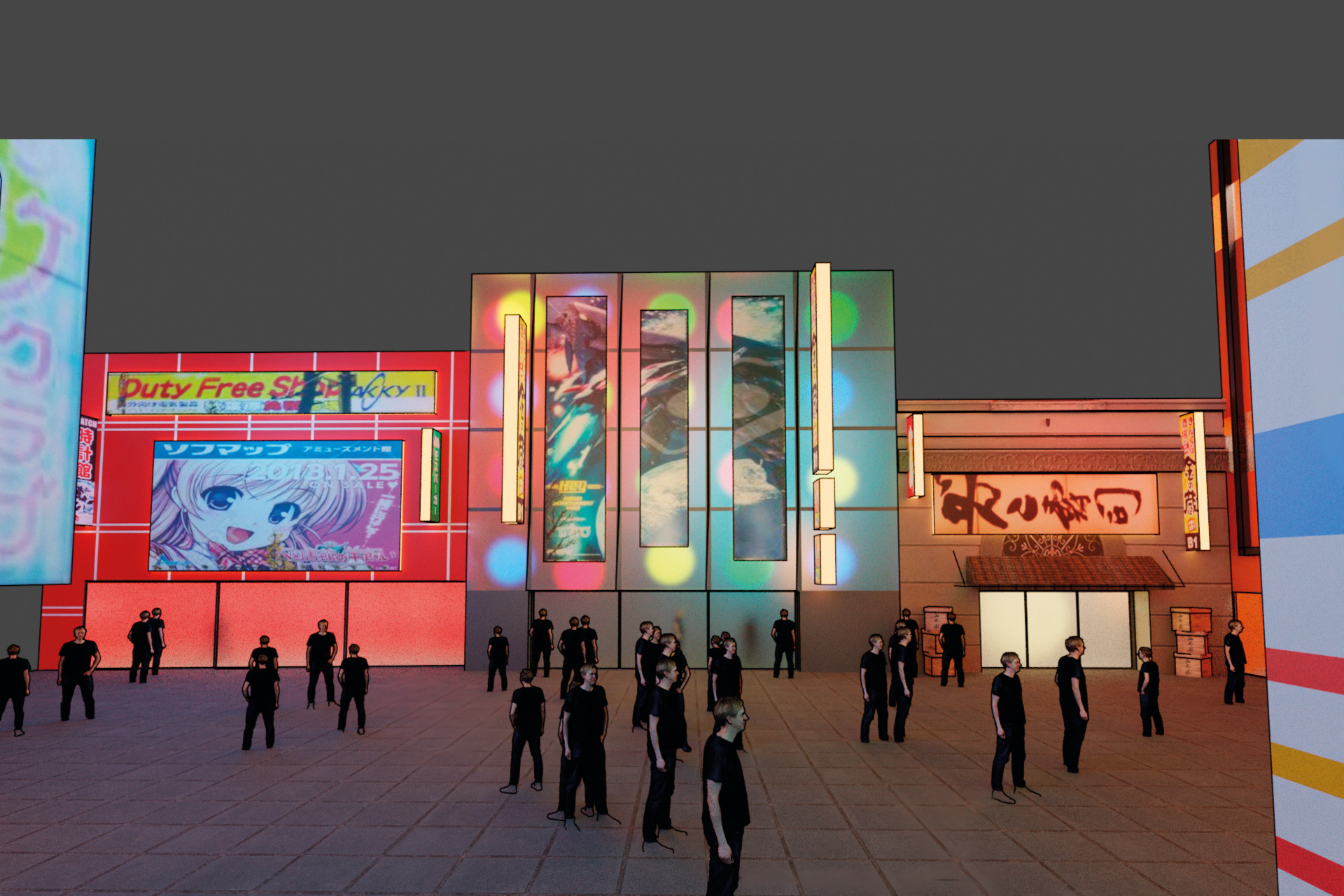Open up your Digital Doors to the Metaverse
By
3 years ago
Chris Stokel-Walker explores the metaverse's potential

Does the metaverse offer a new way for grand country house owners to capitalise on their assets? Chris Stokel-Walker investigates
Open up your Digital Doors to the Metaverse
What is the metaverse?
In the 18 years since its founding, Facebook has come to dominate our lives – but for the next decade, the company has undergone a rebrand. Now called Meta, it’s shunning social media and moving into the metaverse – a digital, immersive representation of our world accessible through virtual reality (VR) and augmented reality (AR) technology. Meta founder Mark Zuckerberg has pledged to invest billions of dollars a year into the metaverse to make it a reality.
He’s not alone. The metaverse holds enormous potential for those willing to invest in it, according to its proponents, and could end up helping the owners of some of the country’s grandest houses foot the bills for repairs to their real-life homes by earning cash through their digital alternatives.
It has roots in video games
There is precedent for digital facsimiles of real-world buildings and attractions, says Nick Sherrard, who previously worked for the Tower of London and tried to develop a version of it in Second Life, a mid-2000s immersive video game that is widely seen as a predecessor to the metaverse we’re on the cusp of today. ‘There was a Second Life version of the Tower of London and Second Life versions of various English Heritage sites,’ he says. Sherrard, who is now a partner at venture studios Label Ventures, is investigating the opportunity for similar sites in the heritage centre to enter the metaverse today.
Those initial destinations in Second Life, which was released in 2003 and at its peak had an enormous economy of players who paid money to buy items within the game, didn’t last much beyond the game’s initial success. But they came too early, reckons Sherrard. ‘It wasn’t a great experience because the technology wasn’t great,’ he says. ‘There is something interesting about what’s possible now, in terms of mobilising smaller communities to become something bigger.’
An alternative for private estate owners
He suggests that the owners of private homes who want to finance repairs and the upkeep of their property, but don’t want tourists traipsing through the building, could offer digital alternatives part-based in the metaverse and using other technology associated with Web3, the overarching development of the internet of which the metaverse is a key part. Visitors could pay for access to the digitised version of a building in the metaverse and build up loyalty points that would allow them to then get exclusive access to the real thing, should they visit. Alternatively, the artwork that lines the walls of grand country homes could be digitised and turned into non-fungible tokens (NFTs), another tenet of the Web3 revolution, that could be bought by collectors, raising cash along the way. ‘It would enable people to genuinely co-own something and monetise people’s interest in the things homeowners may own,’ says Sherrard.
Opening up an alternate universe
In order to realise the potential of the metaverse, you’ve first got to get into it. And, just like real life, those looking to build somewhere need land. Many of the metaverse providers currently selling parcels of land, including Decentraland, Sandbox and Enjin, charge wildly different prices. ‘Buyers gain access to a “game builder” that allows them to not only 3D-design creations like buildings but also characters and games within the metaverse,’ says Janine Yorio, chief executive officer of Everyrealm, which invests in real estate in the metaverse. ‘People have bought up parcels of land over Oxford Circus, Covent Garden, Times Square in New York – all over the place,’ adds Dave Carr of Parcel, a metaverse real estate company. Once you’ve bought a parcel of metaverse-based land, you can build on it.
George Bileca, chief executive officer of metaverse architecture firm Voxel Architects, has recreated digital versions of grand homes and galleries in the metaverse. ‘The main reason someone would want a representation of their house is that it would live forever in the metaverse and wouldn’t be affected by time and deterioration,’ he says. Bileca can imagine a number of different ways to monetise any property in the metaverse, including charging admission by gating the entrance to the digital version of a building.
Voxel Architects can take traditional architectural plans of a building and transform them into a 3D model, with details like wall colour and brickwork filled in using reference photographs of the building. The whole process can take up to two months and doesn’t come cheap. ‘We’re talking tens of thousands of dollars,’ Bileca says – that’s before you even consider the cost of buying the land itself.
Don’t miss the boat
Parcel’s Carr recommends buying in sooner rather than later, suggesting that the metaverse is at an inflection point just before widespread adoption. Augmented reality glasses, which will overlay digital elements onto the real world, will soon be released – including rumoured plans from Apple, makers of the iPhone. ‘That’s probably going to onboard people to the metaverse more than any of these virtual world projects that have been around for a few years now,’ Carr says. Bileca is also bullish on buying in now. ‘The answer would be the same to why buy physical land now and not 10 years later?’ he says. ‘Ten years later it’s going to be ten times more expensive.’
Some people are sitting on sections of metaverse ‘land’ as speculators, while others are turning them into interactive digital experiences – or letting out their land to organisations that are. Plenty of technology firms, including Samsung, have built their own destinations within the metaverse. But it’s not simply a case of ‘build it and they will come,’ says Carr. ‘This is a question we always ask brands: What do you intend on doing with the land? What’s the experience? What can you offer people? Why would people visit the property?’
Carr could see plenty of potential for properties in the metaverse. ‘There’s a lot to be said for overseas visitors who don’t necessarily have a National Trust pass or aren’t in proximity to a great home to be able to move through that space,’ he says. ‘There’s certainly a lot of interest for a foreign audience.’
But it’s not exactly eco-friendly
Diving headlong into the metaverse is a step people should carefully consider before doing so, in large part because for all those who embrace the concept and potential of the metaverse, there’s likely to be equal backlash. One area that those opposed to the metaverse point to? The technology’s eco-credentials. Because of its nascent nature it’s impossible to define exactly, but the high-quality graphics, live-streaming internet connections and vast volumes of data required to make the metaverse work will likely create a significant carbon footprint. A single artificial intelligence model, which could be seen as an equivalent computing task, creates five times as much carbon dioxide emissions as the average car, according to researchers at the University of Massachusetts.
The reputational risk of entering the metaverse doesn’t just extend to its green credentials, however. Teething issues with the metaverse have included problems around inappropriate content, sexual harassment and digital violence. While you’re not likely to fall victim to metaverse muggers, if someone comes across worrying content while on your land, the negative repercussions could blow back to you.
Yet despite the naysayers and the numerous risks, there is an opportunity there for future-facing individuals willing to take a chance on it becoming the next big thing. Zuckerberg, its current architect, hopes to bring a billion people into the metaverse by the end of the decade. It’s a bold prediction – but if it does, that’s an awful lot of money for those willing to open their digital doors.
READ MORE:
WTF are NFTs? / Body Language: Digital Beauty Trends / Digital Fitness Trends: What to Try & Who to Know


